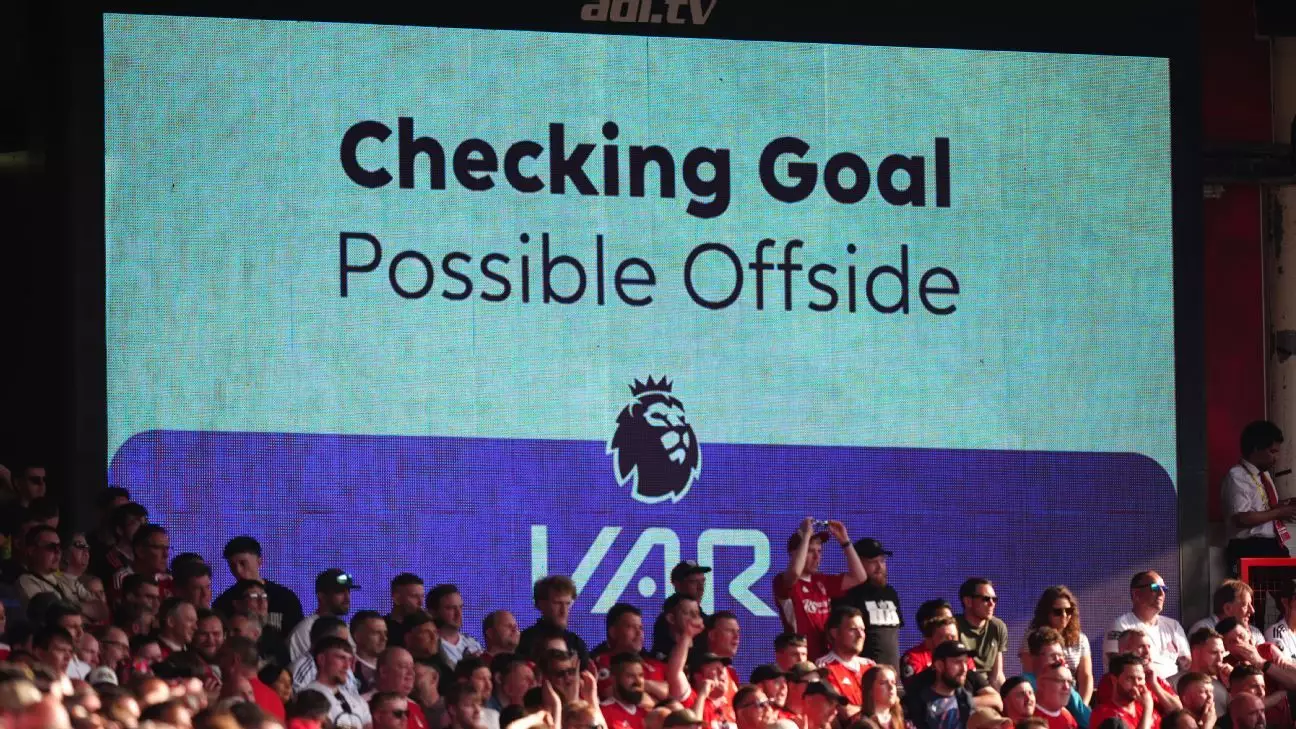In the competitive world of professional football, tensions often run high, especially when clubs are sweating it out in relegation battles. This tense atmosphere can lead to emotionally charged reactions, and Nottingham Forest’s latest controversy is a striking example. The English Football Association (FA) recently imposed a hefty fine of £750,000 ($979,526) on the club for a critical social media post directed at video assistant referee Stuart Attwell. The post followed a critical match against Everton, emphasizing how the emotional stakes can trigger significant repercussions for football clubs in their quest for survival.
The social media post, which questioned Attwell’s impartiality, was made after Nottingham Forest’s defeat against Everton on April 21 during a time when both clubs were fiercely attempting to avoid relegation. The club’s allegations about the officiating were not taken lightly. The excessive penalty of £750,000 was viewed by Nottingham Forest as “wholly disproportionate,” and they expressed intentions to appeal. The financial implications of this sanction are immense, and underscore the increasing scrutiny clubs face regarding their communications, particularly in the age of social media.
Furthermore, this fine comes alongside a warning for misconduct for publicly questioning the integrity of match officials. Nottingham Forest’s public relations strategy turned sharply defensive as they insisted their comments were only critical of officiating decisions, not indicative of any ulterior motive or bias. This incident invites a broader conversation about the manner in which clubs express dissatisfaction, and whether or not that line can be blurred by emotion, particularly during high-pressure scenarios.
Nottingham Forest’s outcry primarily focused on three contentious decisions during the match, all involving Everton’s Ashley Young. The club’s management, including manager Nuno Espirito Santo, expressed deep frustration with the officiating. Their stance revolves around the belief that crucial penalties were overlooked, including a noteworthy incident involving American international Giovanni Reyna and two others concerning Callum Hudson-Odoi. This narrative was fortified by former referee Mark Clattenburg—who was serving as a referee analyst for the club—arguing in a column that the officiating was poor and led to a grim experience for Forest.
Clattenburg succinctly characterized the decisions made in this high-stakes match as a “hat trick of howlers,” underscoring the shared frustration among supporters and club officials. His reflections place emphasis on the systemic issues faced by clubs like Nottingham Forest, drawing attention to the potential ramifications of poor officiating on a club’s survival prospects. This dynamic illustrates not only the emotional weight of the moment but also reflects the intricate web of relationships between clubs, regulators, and referees.
In this digital age, social media has become both a platform for fan engagement and a minefield for potential controversy. Clubs wield significant influence and responsibility when they express views on such platforms, as seen in Nottingham Forest’s case. What may appear as an expression of frustration can easily be reinterpreted as an attack on the integrity of the game or its officials. Indeed, Nottingham Forest’s challenge stems not only from the content of their statements but also from the platform used to disseminate them.
Their message, meant to shed light on perceived injustices, instead drew the attention of regulatory bodies, resulting in a fine that could be crippling for any club, let alone one struggling to secure its place in the Premier League. The FA’s stance further amplifies the complexities clubs face in navigating robust social media policies while aiming for transparency in times of dispute.
As Nottingham Forest prepares to appeal the FA’s sanctions, the broader implications of this incident emerge. Clubs must grapple with how to articulate grievances against officiating without breaching FA guidelines. The challenge becomes even more pronounced when such disputes have direct consequences in their fight to remain competitive in the Premier League.
Moreover, this situation raises questions about the relationship between clubs and officiating bodies. The perception of bias and the quality of officiating are critical components in preserving the sport’s integrity, and both clubs and regulators may need to reflect on their communication strategies. Increased clarity on the responsibilities of referees, and their accountability to clubs, may breed an atmosphere of constructive dialogue rather than conflict.
As Nottingham Forest moves forward, their appeal process will not only test the resilience of the club but may also serve as a pivotal case study in the ongoing evolution of governance in football, highlighting the need for responsible communication amidst the pressures of a winning culture.

